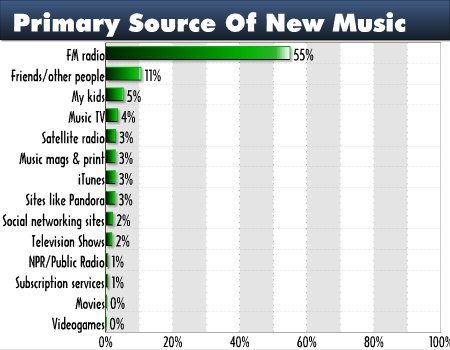(este é um texto de uma empresa que trabalha com e para a indústria de rádio nos EUA)
«Since broadcast radio’s beginning in the 1920s, there have always been naysayers. And, with every new technology that comes along, the critics predicted the end of the medium.
Television’s arrival brought dire predictions of the end of radio’s relevancy. Who after all would want to listen to radio when they could watch moving pictures? But radio adapted, maintained and even grew its audience. When cable and the Internet came along, media pundits again predicted radio’s demise, but radio adopted streaming online content, among other things, to extend its listening audience and brand. In addition, internet radio has grown to the point where it now claims 29 million listeners per week.
Now MP3 players have media analysts predicting that radio will surely falter. Again, radio is responding by providing things that listeners get best from radio, like local and breaking news, weather, traffic, and special listener programming. And by providing streaming and MP3 downloads, radio is embracing the very technology that was said to mean its downfall.
We often survey radio stations about their audience and programming and consistently find that stations, rather than running away from new technologies, are embracing them to extend their listening audience and provide another outlet for branding and promoting their programming. If any medium has demonstrated staying power, it is radio. As the cassette tape, walkman, discman, and other consumer mediums, have been ushered into the dustbin of technology’s yesteryear, radio has remained. And as television now begins the switch to a digital signal, radio likewise has increased its quality and accessibility through HD radio, satellite radio, streaming, podcasting, and a strong web presence. So tune in to radio and see what all the fuss is about – news, talk, music, weather, traffic, laughter and tears – all without those distracting moving pictures» (Radio Can't Be Stopped , Tuning In, News Generations, 25/04/08)
